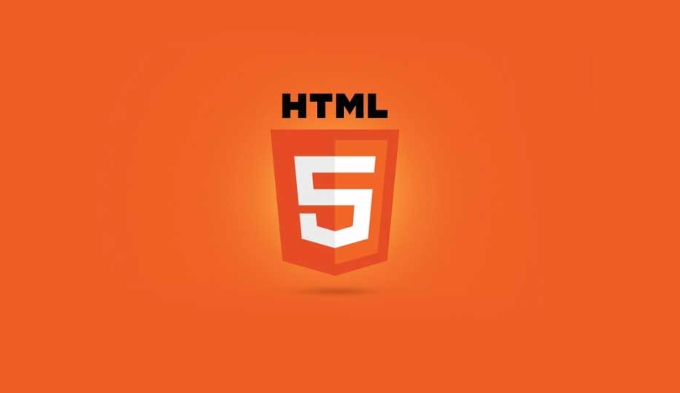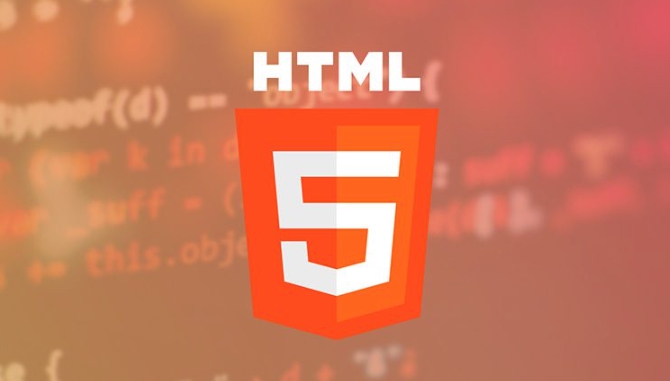使用HTML5音频元素自定义音频体验
使用HTML5 Audio API可通过自定义控件、样式和播放行为提升网页音频体验。具体方法包括:1.通过controlsList或隐藏默认控件来自定义控制界面;2.构建带播放、暂停、音量控制等功能的自定义UI并确保可访问性;3.通过脚本实现自动播放、循环播放、淡入淡出效果及检测播放状态;4.通过动态更新src属性或多实例处理支持多音轨与播放列表功能,同时封装逻辑以优化代码复用和管理。

If you're working with audio on the web, the HTML5 <audio></audio> element gives you a straightforward way to embed and control sound directly in your webpage. But beyond just playing a track, there's a lot you can do to customize the experience—whether it’s styling controls, adding interactivity, or managing playback behavior.

Here are some practical ways to tailor the audio experience using the HTML5 Audio API.

Customizing the Default Controls
By default, browsers provide their own basic playback controls when you use the controls attribute on an <audio></audio> element. While convenient, these controls are limited in style and functionality.
You can either hide them and build your own interface or tweak what’s visible:

- Use
controlsListandwebkitdirectoryattributes to limit default options (like hiding download buttons). - Hide the native controls entirely with CSS (
controlsList="nodownload"ordisplay: none;) and create custom buttons for play/pause, volume, progress bar, etc.
This approach gives you full visual control while still leveraging the underlying audio engine via JavaScript.
Styling and Building Custom UI Elements
Once you remove the browser defaults, you’re free to design your own player interface. This is especially useful if you want branding consistency or more advanced features like waveform displays or playlist integration.
To get started:
- Create buttons and sliders for common actions (play, pause, mute, volume).
- Use JavaScript to connect those elements with the audio object.
- Listen for events like
timeupdateto update progress bars or current time displays.
For example, you might have a simple play button that toggles state based on whether the audio is paused or playing. Or a seek bar that updates both visually and functionally as the track progresses.
Don’t forget accessibility: ensure screen readers can interpret your controls by using proper ARIA roles and labels.
Controlling Playback Behavior
The real power of the HTML5 Audio API lies in how you manage playback through scripting.
Some common tweaks include:
- Auto-playing on page load (note: often restricted by browser autoplay policies).
- Looping specific sections of a track.
- Fading in/out effects using gain nodes in the Web Audio API.
- Detecting when a track ends and triggering another action.
You can also preload audio files to reduce latency or buffer content progressively depending on user interaction. For example, preloading metadata only (preload="metadata") can help speed up initial page loads without downloading the whole file right away.
Just keep in mind that mobile browsers may behave differently—especially around auto-play and user gestures—so always test across platforms.
Handling Multiple Tracks and Playlists
If your site needs to support multiple tracks or playlists, the <audio></audio> element can still work well with a bit of extra logic.
You’ll typically need:
- A way to queue and switch between tracks.
- State management to know which track is currently playing.
- Visual feedback showing now-playing info or playlist contents.
One approach is to dynamically update the src attribute of a single <audio></audio> element as users select different tracks. Alternatively, you can maintain multiple audio instances if crossfading or overlapping playback is required.
Either way, it helps to encapsulate audio handling into a small utility or class so you don’t repeat code every time a new track is loaded.
Customizing the HTML5 audio experience doesn’t have to be complicated, but it does require attention to detail—especially around browser compatibility and user interaction rules. With a little JavaScript and thoughtful UI design, though, you can turn a simple audio tag into a polished, interactive player that fits your site perfectly.
基本上就这些。
以上是使用HTML5音频元素自定义音频体验的详细内容。更多信息请关注PHP中文网其他相关文章!

热AI工具

Undress AI Tool
免费脱衣服图片

Undresser.AI Undress
人工智能驱动的应用程序,用于创建逼真的裸体照片

AI Clothes Remover
用于从照片中去除衣服的在线人工智能工具。

Clothoff.io
AI脱衣机

Video Face Swap
使用我们完全免费的人工智能换脸工具轻松在任何视频中换脸!

热门文章

热工具

记事本++7.3.1
好用且免费的代码编辑器

SublimeText3汉化版
中文版,非常好用

禅工作室 13.0.1
功能强大的PHP集成开发环境

Dreamweaver CS6
视觉化网页开发工具

SublimeText3 Mac版
神级代码编辑软件(SublimeText3)
 为什么我的图像未显示在HTML中?
Jul 28, 2025 am 02:08 AM
为什么我的图像未显示在HTML中?
Jul 28, 2025 am 02:08 AM
图像未显示通常因文件路径错误、文件名或扩展名不正确、HTML语法问题或浏览器缓存导致。1.确保src路径与文件实际位置一致,使用正确的相对路径;2.检查文件名大小写及扩展名是否完全匹配,并通过直接输入URL验证图片能否加载;3.核对img标签语法是否正确,确保无多余字符且alt属性值恰当;4.尝试强制刷新页面、清除缓存或使用隐身模式排除缓存干扰。按此顺序排查可解决大多数HTML图片显示问题。
 语义HTML对于SEO和可访问性的重要性
Jul 30, 2025 am 05:05 AM
语义HTML对于SEO和可访问性的重要性
Jul 30, 2025 am 05:05 AM
semantichtmlimprovesbothseoandAccessibility formaningfultagSthatConveyContentsUrture.1)ItenhancesseothRoughBetterContterContenterContenterContenchyArchyWithProperHeadingLeheadinglevels,ifravedIndexingViaeLementLikeAnd,andsupportFortForrichSnippersingsundsustructussunddbuestussund.2)
 HTML5解析器如何处理错误?
Aug 02, 2025 am 07:51 AM
HTML5解析器如何处理错误?
Aug 02, 2025 am 07:51 AM
HTML5parsershandlemalformedHTMLbyfollowingadeterministicalgorithmtoensureconsistentandrobustrendering.1.Formismatchedorunclosedtags,theparserautomaticallyclosestagsandadjustsnestingbasedoncontext,suchasclosingabeforeaandreopeningitafterward.2.Withimp
 什么是HTML5数据属性?
Aug 06, 2025 pm 05:39 PM
什么是HTML5数据属性?
Aug 06, 2025 pm 05:39 PM
HTML5dataattributesarecustom,validHTMLattributesusedtostoreextrainformationinelementsforJavaScriptorCSS.1.Theyaredefinedasdata-*attributes,likedata-user-id="123".2.Theyallowembeddingprivate,customdatadirectlyinmarkupwithoutaffectinglayoutor
 使用html5 schema.org标记定义自定义词汇。
Jul 31, 2025 am 10:50 AM
使用html5 schema.org标记定义自定义词汇。
Jul 31, 2025 am 10:50 AM
Schema.org标记是通过语义标签(如itemscope、itemtype、itemprop)帮助搜索引擎理解网页内容的结构化数据格式;其可用于定义自定义词汇表,方法包括扩展已有类型或使用additionalType引入新类型;实际应用中应保持结构清晰、优先使用官方属性、测试代码有效性、确保自定义类型可访问;注意事项包括接受部分支持、避免拼写错误、选择合适格式如JSON-LD。
 如何处理HTML5画布上的鼠标事件?
Aug 02, 2025 am 06:29 AM
如何处理HTML5画布上的鼠标事件?
Aug 02, 2025 am 06:29 AM
要正确处理HTML5canvas上的鼠标事件,首先需给canvas添加事件监听器,然后计算鼠标相对于canvas的坐标,接着通过几何检测判断是否与绘制的对象交互,最后实现如拖拽等交互模式。1.使用addEventListener为canvas绑定mousedown、mousemove、mouseup和mouseleave事件;2.利用getBoundingClientRect方法将clientX/clientY转换为相对于canvas的坐标;3.通过手动几何计算(如矩形边界或圆的距离公式)检测鼠
 HTML5中支持的音频格式是什么?
Aug 05, 2025 pm 08:29 PM
HTML5中支持的音频格式是什么?
Aug 05, 2025 pm 08:29 PM
HTML5音频格式支持因浏览器而异,最常用格式包括:1.MP3(.mp3,audio/mpeg,所有主流浏览器均支持,兼容性最佳);2.WAV(.wav,audio/wav,支持较好但文件大,适合短音频);3.OGG(.ogg/.oga,audio/ogg,Chrome、Firefox、Opera支持,Safari和IE不支持,开源免费);4.AAC(.aac/.m4a,audio/aac,Safari、Chrome、Edge支持,Firefox支持有限,常用于苹果设备)。为确保兼容性,应在标签








